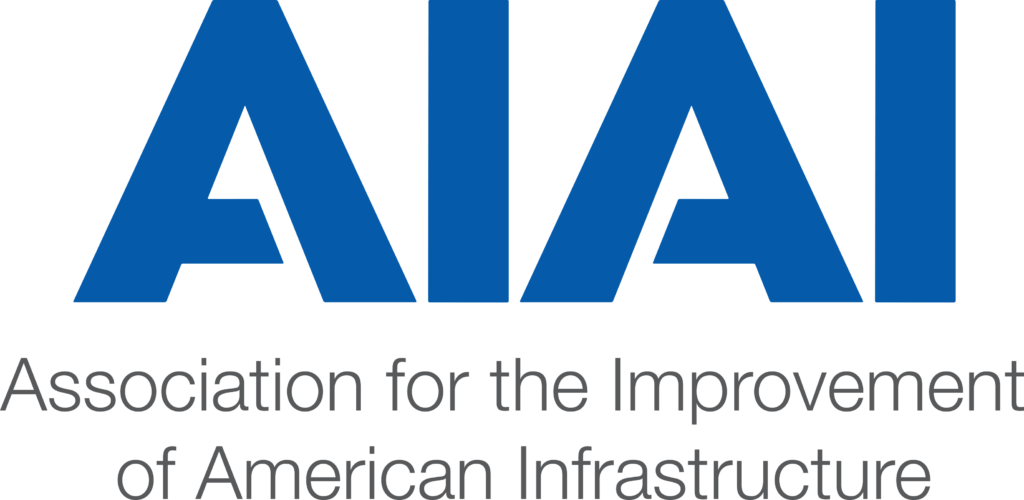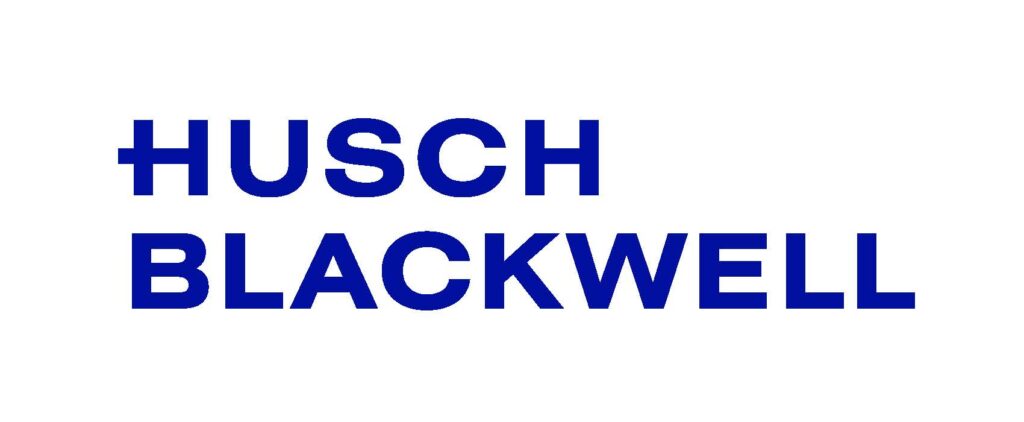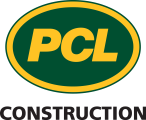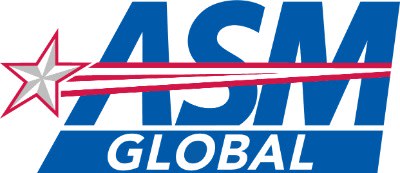2022 Agenda
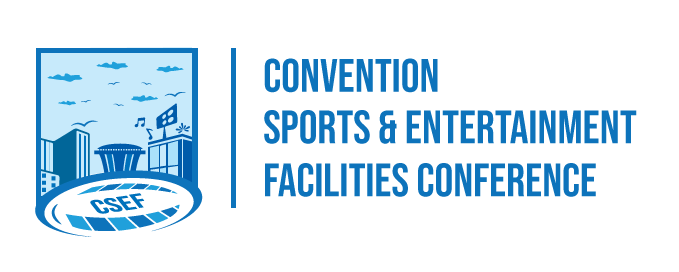
Check back soon for additional program updates – we’re adding new speakers and sessions daily!
Tuesday, Jun 14
-
7:00 am — 5:45 pm
Conference Check-In & Registration
Registration is located on the second floor of the JW Marriott in the Ybor Pre-Function Area.
-
7:30 am — 8:45 am
P3 Questions & Answers Breakfast Workshop: Infrastructure - Innovative & Economic Development (Open to Owners and Public Sector Attendees Only | Advanced Registration Required)
Ybor Salons I-IIIJoin industry leaders and AIAI members for breakfast and an interactive conversation specifically tailored to the needs of owners. This pre-conference session is designed for those beginning to explore P3s to gain a better understanding of where they can be applicable. Learn about when P3s do and do not make sense to advance, the major considerations that need to be made when choosing this route, how the model can save money and time when dealing with system repairs and maintenance, and some crucial first steps.
Click here to register.
Presenters:Jed Freedlander, Managing Partner & Head of Business Development, Phoenix Infrastructure GroupMichael Lexton, Managing Director, UBSRob Hunden, President & CEO, Hunden Strategic PartnersThomas John, Partner, Ice Miller LLPWilliam Gorham, Vice President, Business Development and Partnering, Plenary Americas -
9:00 am — 10:00 am
Welcome Remarks and Opening Plenary: What’s New in Tampa
Ybor Salons IV-VJoin us as we open the Conference with Tampa public and private sector leaders who have worked collaboratively on projects to benefit the community as a whole and the Water Street, Midtown and Heights developments. Hearing about how leaders in Tampa have collaborated to build consensus and overcome challenges throughout the building process will be informative. They will talk openly of approaches they took that they might, in hindsight, do differently and how the lessons they learned along the way shape their current thinking. This panel will be moderated by JLL and promises to be a lively informative session.
-
10:00 am — 11:00 am
MORNING KEYNOTE: The Winning DNA of #TeamTampaBay
Ybor Salons IV-VOut of nearly 20,000 cities across the country, the Tampa Bay area was recently named by Street and Smith’s Sports Business Journal as the 2021 Sports City of the Year. From Super Bowl LV to WrestleMania 37, the Tampa Bay Sports Commission’s Executive Director Rob Higgins will take us on a behind the scenes journey of how Team Tampa Bay earned this prestigious honor through their winning mentality both on and off the field.
-
11:00 am — 11:30 am
Networking Coffee Break
Expo Hall -
11:30 am — 12:30 pm
Make a Financing Slam Dunk by Creating a Mixed-Use District around your Sports Venue
Ybor Salons IV-VThe public and private sectors are finding success in funding new sports arenas and stadiums without tapping existing public revenue streams, but instead creating new (or increased) revenues via the development of mixed-use districts. Come hear how youth sports complexes, USL soccer stadiums, and major league projects have all been financed by capturing a variety of new revenue streams generated throughout the district. Also, understand how the development of these districts provides the synergy to make all components more sustainable for the long haul. Public sector officials will tell their stories and explain how they pulled off their projects.
-
11:30 am — 12:30 pm
Re-envisioning Convention Center Destinations: State of the Industry
HB Plant Salons A-BHow does your organization approach convention center renovations, expansions and new build opportunities? These opportunities are a way to reimagine a city’s destination story in a competitive marketplace. In this panel discussion and presentation, the discussants will explore how strategic partnerships can activate and monetize facilities, infuse cities with new energy, and completely transform convention districts. Join Populous Senior Principal and Convention Center Director Michael Lockwood in a conversation on the state of meetings and conventions with 3 proven industry innovators from Orange County California, the City of New Orleans, and Oak View Group.
-
11:30 am — 12:30 am
Leveraging Technology to Meet the Evolving Needs of Consumers
HB Plant Salons C-DThe COVID-19 pandemic was awful but served as the impetus to develop impactful innovations. Many technology companies quickly pivoted to develop technology that meets consumer needs by streamlining purchasing, payment, delivery, and communication methods to provide products on-demand. The hardware and software that has been developed and deployed is designed to enhance the consumer experience. Products that create safe environments, improve communications, and increase customer satisfaction for public assembly facilities will be discussed by a panel of experts from the technology, design, and operations management fields.
-
12:30 pm — 1:30 pm
Networking Lunch
Expo Hall -
1:30 pm — 2:15 pm
Afternoon Plenary: ESG and the Impact on Communities
Ybor Salons IV-VThe term ESG is used widely in the industry, but what does it mean and how are industry stakeholders implementing it? When applied to infrastructure, can meaningful positive social impact be achieved? Panelists will discuss the ability to incorporate innovative goal setting for maximum and lasting value, and identify challenges and solutions for best practices.
-
2:15 pm — 3:15 pm
Sports and Entertainment Developments – Fans, Community, and Capital Investment
Ybor Salons IV-VSports teams are becoming real estate developers in order to create a broader, more holistic experience that appeal to today’s fans as well as to capitalize on the benefit of the value creation a team adds to real estate. Like many developers whose projects drive economic development, partnership with public entities and the community are an essential part of the equation. Sports and entertainment districts can drive significant private investment, provide positive economic impact for the region, and create essential amenities for growing communities. What are the keys to success for sports and entertainment anchored developments? How do we create a “win-win” for both public and private investment? What is the equation that motivates capital to be deployed to realize the vision?
-
2:15 pm — 3:15 pm
Leveraging Energy-as-a-Service Transactions to Fund Capital Programs
HB Plant Salons A-BThis session will feature leadership from the Jerry Jones (Dallas Cowboys) family of companies (ProStar) and nation-wide engineering organizations (Bernhard) that successfully implemented an energy optimization program at AT&T Stadium in Texas. Starting with AT&T Stadium as a case study, this panel will review the completed project and successful outcomes. Using this information, the discussion will transition into sports & entertainment venues for higher education and the opportunities to fund utilizing an Energy-as-a-Service methodology. ESG will be included in the discussion as a necessary component of a successful program, and the over-arching challenges in both financing (Generate Capital) and program managing (CORE) all necessary stakeholders.
-
2:15 pm — 3:15 pm
Are You Future Proof? Adapting Existing Spaces to Accommodate Emerging Event Segments
HB Plant Salons C-DEsports, drone races, robotics, hackathons, STEM events, virtual activations – Silicon Valley buzzwords suddenly represent the forefront of the live event industry’s future. Public assembly venues of all types are increasingly exploring the potential to attract these emerging event types. The conversation will focus on recent projects they have led, including an esports-centric concert venue in Los Angeles, a Technology Arena in San Antonio, a STEM event center in Broken Arrow, (OK), and the conversion of meeting space South Bend, (IN) into an esports training facility. Panelists will discuss how to combine cutting edge technology with traditional event center design principles to successfully compete in the evolving event landscape.
-
2:15 pm — 3:15 pm
Alternative Financing Case Study: Fredericksburg Stadium
Ybor Salons I-IIIIn 2019 the Potomac Nationals reached financial close with the City of Fredericksburg for the design, engineering, acquisition, development, construction, and equipping of a $35 million multi-purpose Minor League Baseball ("MiLB") stadium and associated surface parking, together with related land and support facilities. Join members of the deal team involved in the bringing that deal to a successful conclusion as they delve into the successes and challenges during the process.
-
2:15 pm — 3:45 pm
P3Direct Bootcamp: Project Readiness (Open to Owners and Public Sector Attendees Only | Advanced Registration Required)
Fort BrookeIs your project a good Public-Private Partnership candidate? Join AIAI experts as they explore what makes a good P3 project and what to consider as you are bringing your project to market.
Click here to register.
-
3:15 pm — 3:45 pm
Networking Break
Expo Hall -
3:45 pm — 4:45 pm
The Return of a Full House: Driving Revenue and Experience with Digital Design
Ybor Salons IV-VIsn’t it great to have a packed house again? As you reintroduce your fans to your venue, now’s a great time to consider refreshing your venue. One of the most bang-for-your-buck options is to review your digital experience throughout your venue (both inside and out) and look for ways to gain more value. A refreshed digital experience can increase revenues and have a quick ROI through more sponsor and ad opportunities, and it can also provide unique and exciting experiences to lure people away from the digital world and back into the physical. In this presentation, you’ll hear from digital integration specialists on how to assess your digital environment and determine the right technology for your space; trends in digital integration through design and software applications; and case studies illustrating best-in-class, fully immersive environments in sports and entertainment.
-
3:45 pm — 4:45 pm
Case Study of Bell Bank Park, Mesa, AZ
HB Plant Salons A-BLegacy Cares, Inc. (“Legacy Cares”) is a non-profit 501(c)(3) entity that was incorporated in the State of Arizona in 2018. Legacy Cares is an organization dedicated to creating life-changing opportunities for all individuals through access to family entertainment facilities centered on youth sports. Their philosophy is to provide athletes and non-athletes of all ages, economic backgrounds, and levels of athletic proficiency, the opportunity to participate in sports while fostering the enjoyment and camaraderie of teamwork and perseverance, key components in athletic competition and lifetime success. The Legacy Sports Park will be operated by the Oak View Group, one of the largest venue management and event programming companies that operates and manages sports parks, arenas, theaters, convention centers, and amphitheaters throughout the United States. Oak View Group is one of Silver Lake Partner’s (“Silver Lake”) portfolio companies. Silver Lake is the global leader in technology investing, with more than $60 billion in combined assets under management. Come hear from the owner, underwriter, counsel, and feasibility consultant as they share the story of this amazing ground-breaking project.
-
3:45 pm — 4:45 pm
Digital Twin Technology for the Sports Entertainment and Convention Industry
HB Plant Salons C-DDigital Twin technology is the latest application of virtual site replication, which derives 3D Models from photographs, LIDAR (laser light scanning) data or a combination of both. The resulting real-time models provide “on-demand” survey of complex conditions providing a platform for planning, operations and maintenance of any facility. The virtual model can be populated with facility infrastructure to create an integrated asset management tool for operations and maintenance. Aerial drone technology is an excellent way to leverage the benefits of 3D Modeling. Drone technology offers the benefit of being able to collect data quickly and efficiently. The model can be converted into a 2D topographic base plan just as you would generate from a traditional land survey for capital improvements and design. 3D Models provide tremendous benefit at a cost that can pay for itself through operational efficiencies.
This panel will provide case studies where the creation of a survey-level physical data model has provided a valuable visualization tool used for maximizing vendor opportunities, planning emergency service routes and egress, seat and viewshed maps, and light distribution.
-
3:45 pm — 4:45 pm
Why do a P3? Building the Business Case for a P3 and Selling it to Your Community
Ybor Salons I-IIIWhat business considerations must an owner review before starting the P3 process? This panel will discuss the elements that must be considered as the pubilc builds out the business case for a P3, and share ideas on how to effectively communicate it to the community at large.
-
4:45 pm — 5:45 pm
Reimagining Sacramento: Case Study on Building a Resilient Facility to Meet the Needs of a Vibrant City
Ybor Salons IV-VCompleted this year, SAFE Credit Union Convention Center demonstrates how critical public-private partnerships are to the redevelopment of economic generating facilities within major urban centers. This panel will explore how Sacramento’s city-owned and operated assets partnered with the Mayor’s office, end-users, downtown businesses, and local and state visitors’ bureaus to define building design and program upgrade requirements of this $245M project. The panel, consisting of ownership, destination marketing organization and architect will discuss the various financing approaches, such as bond-funding, special tax districts, naming rights, and corporate partnerships used to modernize and expand the capacity of the convention center facilities.
-
4:45 pm — 5:45 pm
Public Assembly Spaces and Adaptation to Multi-Use
HB Plant Salons A-BMore and more throughout the US, municipalities and public authorities are getting user and stakeholder input at the project’s inception and are responding to the needs and requirements of the communities they serve. Whether they be primary, secondary or tertiary markets, public assembly spaces are being designed to be versatile to accommodate a myriad of activities which ultimately has a positive impact on the pro forma and the bottom line. Join us as we discuss the latest trends, challenges and opportunities in public assembly spaces.
Moderator:HB Brantley, Managing Principal, S.P.A.C.E. (Sports, Public Assembly, Cultural & Entertainment)Panelists:Don Dethlefs, Global Sports, Recreation and Entertainment Practice Leader & Principal, Perkins&WillGerald Kissel, Ed.D, Professor Sports Management, Hilbert CollegeRob Hunden, President & CEO, Hunden Strategic Partners -
4:45 pm — 5:45 pm
The State of the Entertainment Industry and Its Effect on Facilities
HB Plant Salons C-DAfter a COVID-induced hibernation, the entertainment industry has come roaring back to life. But it’s not as simple as putting tickets on sale and turning it up to 11. Find out how the industry has changed and how it’s affecting venues, including the loss of venues and the development of new ones, competition for dates and consumer spending, staffing, inflation’s impacts on artists, venues, and fans, temporary and permanent changes from COVID, and the short- and long-term prognosis.
-
4:45 pm — 5:45 pm
Today’s Top 5 Issues Facing the Convention and Lodging Industry
Ybor Salons I-IIIThis panel will bring together convention center management, sports/tourism, and financial/feasibility analysis to discuss the top five issues and challenges faced by the hospitality industry as it pertains to convention, conference, and sports-related facilities. Topics covered include: attracting and retaining labor and facing the increasing costs associated with the process, how supply chain disruptions are impacting daily and longer-term purchasing activities and short- and long-term capital projects; rising inflation/travel costs and the ever-changing Fed policies; when will hotels, stadiums and convention centers be full again; booking windows for all activities – shorter or longer? Come hear from these experts about real world examples, as well as where they think we are going, so that conference attendees can be better informed to support their existing properties or proposed developments.
-
5:45 pm — 7:00 pm
Opening Night Networking Reception
Expo HallAn evening reception before you head out for dinner. Please join us for this special networking event for all Conference attendees.
Wednesday, Jun 15
-
8:00 am — 9:00 am
Networking Breakfast
Expo Hall -
8:00 am — 9:30 am
P3Direct Bootcamp: Risk Allocation (Open to Owners and Public Sector Attendees Only | Advanced Registration Required)
Fort BrookeWe'll address the types of risk, and best practices for allocation and mitigation to ensure project success.
Click here to register.
-
9:00 am — 10:00 am
OPENING PLENARY: Shaping the Future of Soccer in America – Leading the Push for Equality in Men’s and Women’s Soccer
Ybor Salons IV-VThe United Soccer League (USL) plans to double the number of professional women’s soccer teams in the United States when the new USL Super League kicks off in August of 2023. This year, the USL launched its pre-professional W League with 44 teams. It’s part of a “one club, multiple teams” strategy that is unprecedented in American sports and augments the USL’s 40+ professional teams and complete player development pathway on the men’s side. This session will explore the business case for gender equity in sports and its impact on facility planning, design, and operations.
-
10:00 am — 11:00 am
Redeployment of Underutilized Fairgrounds
Ybor Salons IV-VFairgrounds have an interesting place in American heritage. Often large swaths of land that can be favorably located and may attract as many visitors annually as a Major League Baseball team, they are often forgotten opportunities. This panel will explore what is happening in these venues nationally and we will discuss the adaptation of the Santa Clara County Fairgrounds, which will have a better fair with better facilities, the nation’s first ML Cricket Stadium and a practice facility for the San Jose Earthquakes. We will also discuss the privatization of the Dallas Fair Park, which attracts a minimum of 5 million people annually, and is now operated by the Oakview Group. Their planning for the venue, its novel approach to P3 funding and the overall plans for the venue will be discussed.
Moderator:Charles Johnson, President & CEO, Johnson ConsultingPanelists:Abe Andrade, Executive Director, Santa Clara County Fairgrounds Management CorporationDarren James, President, KAI Enterprises and President and CEO of Fair Park FirstWilliam Swann, VP, Corporate Development, Major League Cricket -
10:00 am — 11:00 am
Play On - The Future of Youth Sports Complexes
HB Plant Salons A-BThe development of youth sports complexes has proliferated across the US as communities in primary, secondary, and tertiary markets seek the substantial economic impacts they generate. But will the market become overbuilt? What do economic, demographic, and cultural trends indicate about the future of such developments? Sports complexes come in a wide variety of shapes and sizes. How to communities match their needs with appropriate development? What market conditions are necessary for a successful venue? What are the essential elements of successful public-private partnerships? What are the best practices in financing youth sports complexes
Moderator:Tom Hazinski, Managing Director, HVSPanelists:Aaron DeJong, Assistant Economic Development Director, City of Urbandale, IowaKenny Henderson, Construction Manager, Prospect Sports Partners/Vertex CompaniesKyle Javes, Managing Director, Head of High Yield and Structured Products, Piper Sandler -
10:00 am — 11:00 am
Being Anchored
HB Plant Salons C-DMixed-use developments, which were once known as a suburban phenomenon are now moving closer to downtowns and enlivening the urban neighborhoods they serve. Sports/event facilities of various types are serving as anchors in these developments. This session will explore three different anchor projects through the eyes of their operators and designers and ultimately the facilities impact on their surroundings: Weidner Field, which is a USL soccer-specific stadium located in what was an a debilitate area of downtown Colorado Springs, Colorado, United States; Rocky Mount Event Center, which is an indoor sports destination located in the heart of downtown Rocky Mount, North Carolina; and the Classic Center Arena, which is a 5,500 – 7,500 seat arena renovation which sits adjacent to the University of Georgia and the downtown Athens Warehouse Historic District.
-
10:00 am — 11:00 am
The Future is Now: Why Experience Anchors in Mixed-Use & Stadium Developments are Here to Stay!
Ybor Salons I-IIIEntertainment development strategist - Cliff Warner, explores the why and what of key catalysts in the experience economy for city-planners, architects, developers and brands. From sports arenas to entertainment corridors, Warner will highlight the connective tissue between new market demand trends with case studies of different scales that range from immersive location based entertainment products, event centers and branded live events.
Presenter:Clifford Warner, Chairman, Mycotoo, Inc. -
11:00 am — 12:00 pm
Community Based Infrastructure: A Focus on Leisure and Stadium Projects
Ybor Salons IV-VLearn how owners are delivering value to local stakeholders through improved infrastructure and quality venues such as the University of Texas Moody Arena.
-
11:00 am — 12:00 pm
Funding Convention Centers & Sports Facilities with Tourism Improvement Districts
HB Plant Salons A-BAs destinations increasingly realize the powerful impact of sports tourism, many are looking to upgrade their sports facilities. Enter the Tourism Improvement District (TID) – an industry-approved, industry-governed funding mechanism based on the Business Improvement District model. With almost 200 TIDs in 18 states and counting, TIDs are changing the game. The session will begin with a presentation overview of TIDs: how they function, their advantages, and their implementation. Next, the presentation will explore case studies of destinations that have used TIDs for capital improvements. Finally, hear from our Sacramento panelists about how they implemented a TID to cap off their convention center renovation, with time for Q & A.
-
11:00 am — 12:00 pm
Utilizing Progressive Design Build to Create a World-Class Sports Destination
HB Plant Salons C-DSpokane is proud to announce The Podium, an indoor multi-sport venue, highlighted by the only hydraulic-banked running track in the Western United States. The project forged several unique partnerships and funding approaches–all with the goal of generating economic impact and putting Spokane on the map for sports tourism. The panel will include the progressive design build team¬–which during the pandemic delivered a high-design 135,000 square foot project on a complicated downtown site, ahead of schedule for $400/square foot.
-
12:00 pm — 1:00 pm
Networking Lunch
Expo Hall -
1:00 pm — 2:00 pm
Convention Center Design Today and Tomorrow: Flexibility, Adaptability, and Resilience
Ybor Salons IV-VWhether it is the rapid transformation of a convention hall into a 500-bed alternative care hospital facility, designing a space that can accommodate a wide array of exhibitors with a quick turnaround time, or creating an entertainment venue capable of multiple seating configurations, the key to successful convention center design is flexibility, adaptability, and resilience. From McCormick Place transformation to the award-winning design of the Las Vegas Convention Center, this session will engage a panel of engineers, architects, contractors, and owners to discuss how integrated delivery and coordination is key to creating spaces to meet conventional as well as unforeseen needs.
-
1:00 pm — 2:00 pm
Creating the Destination – From Concept to Concrete
HB Plant Salons A-BThis session will review a real-world case study on the Cedar Point Sports Center. The panelists will discuss the background, goals, and vision of the facility owner (Cedar Fair Entertainment Company), partners in the market, and how they created a navigated opening a $32M facility at the start of a global pandemic. This case study includes background challenges, solutions, results, economic impact, cost savings, and a featured medical partnership at this youth and amateur sports destination in Sandusky, OH.
-
1:00 pm — 2:00 pm
Hotel Marcel: A Net Zero, Ultra-Comfortable Example for the Hospitality Industry
HB Plant Salons C-DComfortable, Resilient AND Net Zero?! This first-of-its-kind hotel located in New Haven, CT paves the way for sustainable hospitality spaces. This innovative historic retrofit has been converted from an office building into a beautiful Net Zero hotel with meeting space and a fully operational all-electric commercial kitchen. Let us take you on the journey from the owner's original vision to the finished Hotel Marcel through the roadblocks, the decision-making process, the construction setbacks, and lessons learned. Hotel Marcel, set to open in Spring 2022, checks all the sustainable boxes. Come learn why highly efficient, ultra-comfortable buildings are the future.
-
1:00 pm — 2:30 pm
P3Direct Bootcamp: Financing (Open to Owners and Public Sector Attendees Only | Advanced Registration Required)
Fort BrookeAn in-depth discussion on financing with particular focus on the use of PABS, taxable debt and other financing tools.
Click here to register.
-
2:00 pm — 2:30 pm
Networking Coffee Break
Expo Hall -
2:30 pm — 3:30 pm
Closing Conversation: Beyond Economic Impact: Expanding the Definition of Event "Success"
Ybor Salons IV-VEconomic impact has long been the primary measurement of events success, particularly among sporting events held at a variety of venue types (sports complexes, convention centers, etc.). However, in recent years, the need for a more holistic approach to expand the definition of "success" in the entire event ecosystem has become apparent. This need was further escalated by the decimation of live events and travel resulting from the pandemic. Now it is imperative that facilities, event operators, industry suppliers, and destinations proactively expand their definition of success for both advocacy and financial viability efforts to ensure organizational sustainability into the future. This session, led by sports events and tourism industry experts, will cover the historical perspective on measuring events and propose a new, expanded philosophy, examples, and practical steps for implementation regardless of industry market segment.
-
3:30 pm
Conference Concludes
See you next year in San Diego, July 17-18, 2023!
